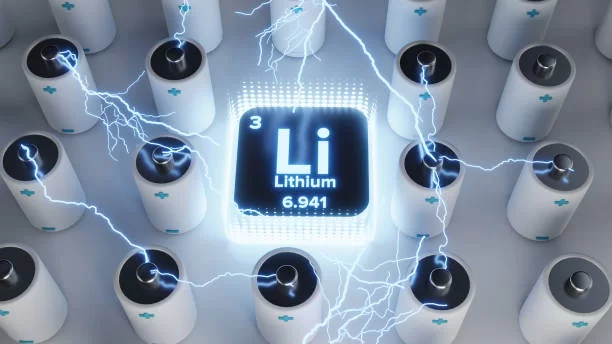The Importance of Recycling Lithium Batteries
As the world increasingly relies on lithium batteries in various sectors, including electronics, electric vehicles (EVs), and renewable energy storage, the need for effective recycling of these batteries has become more pressing. The rising use of lithium batteries is driven by their high energy density, long lifespan, and efficiency. However, their proper disposal and recycling are crucial to mitigating environmental and economic impacts. Here’s a comprehensive look at why recycling lithium batteries is essential and how it benefits both the environment and the economy.

1. Environmental Conservation
- Lithium batteries contain a range of valuable metals such as lithium, cobalt, nickel, and manganese. These metals are essential for the performance of batteries, but they are also finite resources. Mining these materials involves significant environmental costs, including deforestation, soil erosion, and water contamination. By recycling lithium batteries, we can reduce the demand for new mining, thereby preserving natural habitats and minimizing ecological disruption.
- Recycling processes can recover these metals efficiently, reducing the need for virgin materials and thereby decreasing the environmental footprint associated with mining. This conservation effort promotes sustainable resource management, ensuring that we use our planet’s resources more responsibly and extend their availability for future generations.
2. Reduction of Hazardous Waste
- The improper disposal of lithium batteries poses serious risks to the environment and human health. When batteries are discarded in landfills, they can eventually break down and release hazardous substances, such as lithium salts and heavy metals, into the soil and groundwater. These contaminants can lead to pollution, affecting both local ecosystems and human health.
- Recycling lithium batteries mitigates these risks by safely managing and processing the hazardous materials contained within them. Through recycling, toxic elements are either neutralized or repurposed in a controlled environment, thus preventing environmental contamination and reducing potential health hazards associated with improper disposal.
3. Energy Savings and Emissions Reduction
- The energy required to recycle lithium batteries is significantly lower than that needed to mine and process raw materials. Mining operations are energy-intensive and contribute to substantial greenhouse gas emissions. By recycling, we conserve energy and cut down on the carbon emissions linked to the production of new materials.
- Recycling not only conserves energy but also reduces the overall carbon footprint of battery production. This energy efficiency plays a crucial role in the global fight against climate change by lowering the greenhouse gases emitted during the production process, thereby contributing to more sustainable industrial practices.
4. Economic Benefits
- Recycling lithium batteries is not only environmentally beneficial but also economically advantageous. The recovery of valuable metals from used batteries can reduce production costs for new batteries and other products. This recovery process can decrease dependency on imported raw materials, which is economically advantageous for countries with limited natural resources.
Additionally, the recycling industry itself creates economic opportunities. Jobs are generated in various stages of the recycling process, including collection, sorting, processing, and re-manufacturing. These jobs contribute to local economies and foster growth within the green economy sector.
5. Compliance with Regulations and Standards
- Many countries have implemented regulations and standards to manage the recycling lithium batteries. These regulations are designed to protect public health and the environment by ensuring that batteries are handled properly throughout their lifecycle. Complying with these regulations not only helps avoid legal issues and fines but also promotes a culture of environmental responsibility and stewardship.
- Proper recycling practices align with regulatory frameworks and contribute to the overall effectiveness of waste management systems. By adhering to these standards, businesses and individuals can support sustainable practices and help advance global environmental goals.
Conclusion
In summary, the recycling of lithium batteries is vital for numerous reasons, including environmental conservation, hazardous waste reduction, energy savings, emissions reduction, and economic benefits. Recycling these batteries helps conserve valuable natural resources, minimize environmental impact, and create economic opportunities. As the use of lithium batteries continues to rise, it is crucial for individuals, businesses, and policymakers to support and invest in robust recycling programs. This collective effort will ensure that the benefits of lithium batteries can be enjoyed while mitigating their environmental footprint and promoting a cleaner, more sustainable future.
